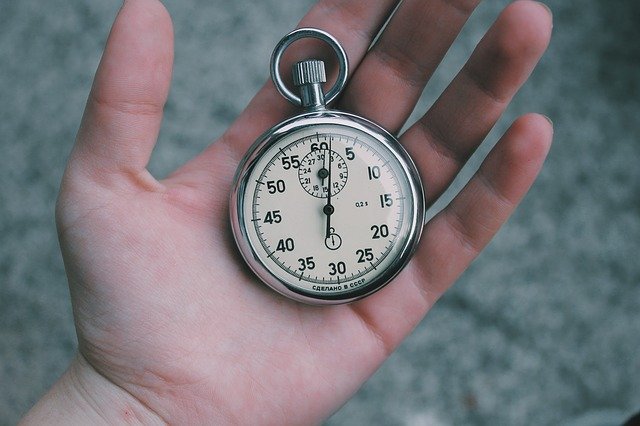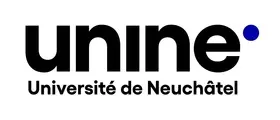
8 Life Lessons You'll Learn Doing A PhD
Read a summary using the INOMICS AI tool
Doing an economics PhD will make you an expert in your research topic, but, beyond that, it will also teach you a number of valuable lessons which are applicable to other jobs and your personal life. Here are some of the most useful lessons that you'll learn from undertaking your own independent research project. If you plan to start your PhD application this autumn, download our free guide "How to successfully apply to a PhD in Economics".
Time management
One of the first skills that you'll pick up in your PhD program is the ability to manage your own time. Unless you have an unusually overbearing supervisor, you will have to be responsible for organizing your own working days and making sure that your work gets done on time. This is excellent training for other roles later in your career in which you will have to allocate time for various tasks to meet deadlines.
 Importance of prioritization
Importance of prioritization
Related to time management, you will also learn to assess the priorities of various tasks. What needs to be done right now, and what can wait? Is it better to get small tasks out of the way quickly, or should you tackle big, demanding projects first? There are different styles which work for different people, and being responsible for your own research project will teach you which prioritization techniques work for you.
How to work with others
Although doing a PhD is largely an independent undertaking, you will also need to work with others. Whether working as part of a research group or organizing an event with your fellow PhD students, you will learn to listen to others, to make your own suggestions to a group, and to find compromises. These are all invaluable skills for later in life.
How to give an oral presentation
At some point in your PhD you will be required to give an oral presentation, such as at a conference, workshop, or as part of your thesis defense. You will get in practice at putting together interesting slides, at speaking clearly to a group, and at conveying information in a comprehensible way.
Self-motivation
One of the biggest challenges to overcome in your PhD is having to motivate yourself. It's unlikely that anyone else will push you to get your work done, so you have to find ways in which you can encourage yourself, even when you're tired or bored. Being able to push through negative emotions to meet your goals is one of the most broadly useful life skills you can acquire.
Effective writing and editing
Whether you write up your thesis as one large document or as several shorter journal articles, you will learn a lot about making sure that your writing is not only accurate, but also concise and engaging. People who have done postgraduate study will have much more writing experience than most of the public, and this is advantageous for many career paths.
Suggested Opportunities
- PhD Program
- Posted 8 hours ago
PhD in Economics
Starts 1 Sep at CEMFI in Madrid, Spain
- PhD Program, Supplementary Course, Program
- Posted 6 days ago
Advanced PhD Courses
at Kiel Institute for the World Economy (IFW) in Kiel, Germany- PhD Program, Program, Postgraduate Scholarship
- Posted 1 week ago
PhD Program in Management - 11 Fully Funded Scholarships
at Luiss Guido Carli University of Rome in Rome, ItalyIndependent creative thought
An underrated skill that you will pick up from running your own research project is the ability to think about problems in creative ways and to come up with novel solutions and ideas. Because you will be working on a new and previously uninvestigated topic, you will not always be able to rely on the concepts of others, and will have to find your own approach to issues. The confidence that this gives you will help you when problem solving in future situations, both personal and professional.
Learning how to learn
Possibly the most useful thing that you'll discover when doing a PhD is what learning methods are effective for you and how to make use of them. You may need to teach yourself skills such as data analysis, programming, or other technical skills. Beyond acquiring the skills themselves, you will also find out about how you learn, and what teaching methods work best for you.
Do you like to read a lot of written information? To see someone knowledgeable working in practice? To test and experiment with new tools by yourself? Being able to identify the methods that work for you will mean that you are capable of teaching yourself any skills that you may require in the future, which is helpful whenever you come across a new or unfamiliar situation.
Header image credit: Pixabay.
-
- PhD Program
- Posted 1 week ago
Graduate Program in Economics and Finance (GPEF) - Fully funded Ph.D. Positions
Starts 1 Sep at University of St.Gallen in Sankt Gallen, Switzerland
-
- Postdoc Job
- (Remote)
- Posted 2 weeks ago
Vacancy for a Postdoctoral fellow
At University of Ghent in Gent, Belgium
-
- Postdoc Job
- Posted 1 week ago
Postdoctoral Research Fellow Opportunity
At University of Notre Dame in Notre Dame, United States












